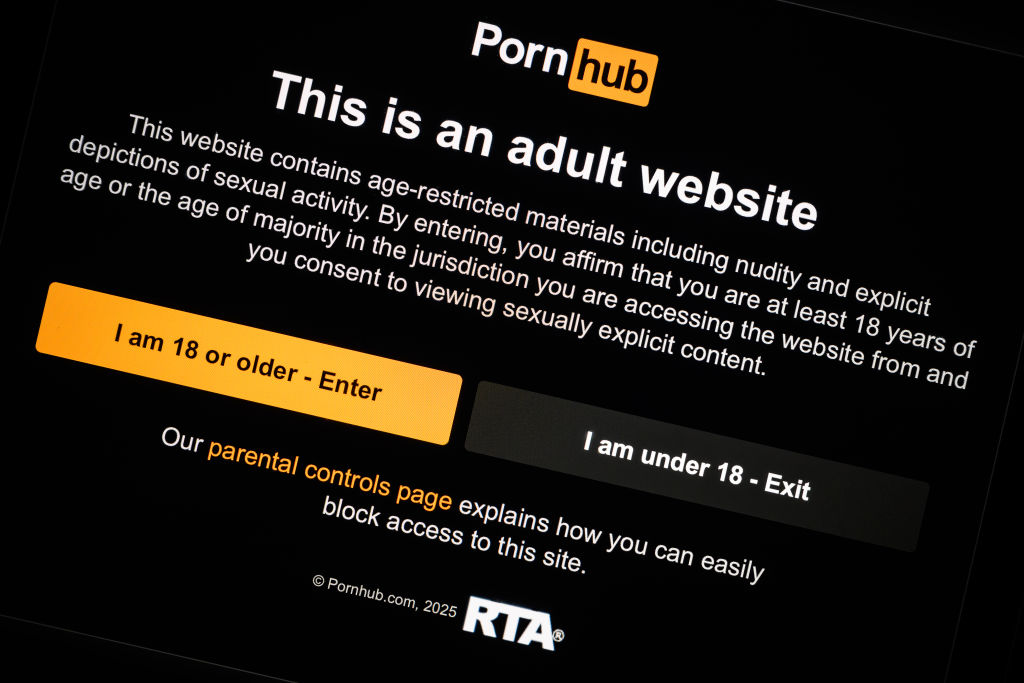The day after the UK’s Online Safety Act came into force, protests outside hotels housing asylum seekers were effectively erased from public view for youngsters on platforms including X.
One such video, showing police officers detaining a demonstrator, was replaced for many UK-based users with the message: “Due to local laws, we are temporarily restricting access to this content until X estimates your age.”
The restrictions introduced on July 25 stemmed from new provisions under the Online Safety Act requiring users to verify their age before viewing “sensitive” content.
Verification can mean submitting government-issued ID, undergoing biometric facial scans, or even passing credit-card checks. In practice, this has already led to the blocking of lawful political footage behind digital age-gates.
AI chatbot Grok suggested this automatic content removal aligned with provisions designed to shield minors from harmful content.
Grok stated that the footage “depicts six to eight police officers in yellow vests pinning a non-struggling man face-down on grass, with bystanders watching. Censored for UK users under the Online Safety Act due to violent content”.
Yet, critics argued, that approach opened the door to broader censorship.
The Free Speech Union warned the legislation may force platforms to “reconfigure algorithms to filter out entire categories of lawful expression before they reach underage or unverified users”.
The union warned that was more than just a digital divide but a ‘default-off’ system where access to legal content was no longer presumed but withheld until what it termed intrusive verification hurdles were cleared.
Frederick Attenborough of the Free Speech Union also highlighted the Act’s vague provisions on misinformation: “There’s a grey area in fast-moving news cycles where what’s considered harmful or false can shift rapidly, placing good-faith reporters at risk of criminal sanctions,” he told Brussels Signal.
The impact of the Act was immediate, with VPN usage in the UK surging.
VPN provider Proton reported a spike of more than 1,400 per cent in UK-based sign-ups shortly after the legislation took effect.
“Just a few minutes after the Online Safety Act went into effect last night, Proton VPN sign-ups originating in the UK surged by more than 1,400 per cent. Unlike previous surges, this one is sustained and is significantly higher than when France lost access to adult content,” it said.
Several VPN providers have reported a notable increase in user demand following the recent withdrawal of several pornographic websites in France, including Pornhub and YouPorn. https://t.co/JOoWDa3HWD
— Brussels Signal (@brusselssignal) June 6, 2025
VPNs allow users to mask their IP address and bypass geolocation blocks, offering a digital answer to censorship.
They may not be a permanent solution, though.
The UK Labour Party has previously hinted at potential bans on VPN usage, signalling further crackdowns may be on the horizon.
In 2022, Labour MP Sarah Champion said she feared children in the UK could use VPNs to bypass the age verification protocol to access content deemed harmful.
Commenting on the recent VPN-use surge, Champion said: “So frustrating, I did warn the last [Conservative] government this would happen but was shut down. Child protection should always be the priority,” she said on July 28.
Critics countered that most VPN services required credit-card payments, making it unlikely they were being widely used by children.
Resistance to the Online Safety Act has been mounting via parliament’s petition system.
By July 29, a petition calling for its repeal garnered more than 340,000 signatures, more than triple the threshold needed to force a debate.
The British administration’s response was blunt: “The government has no plans to repeal the Online Safety Act, and is working closely with Ofcom to implement the Act as quickly and effectively as possible to enable UK users to benefit from its protections”, a spokesperson said.





